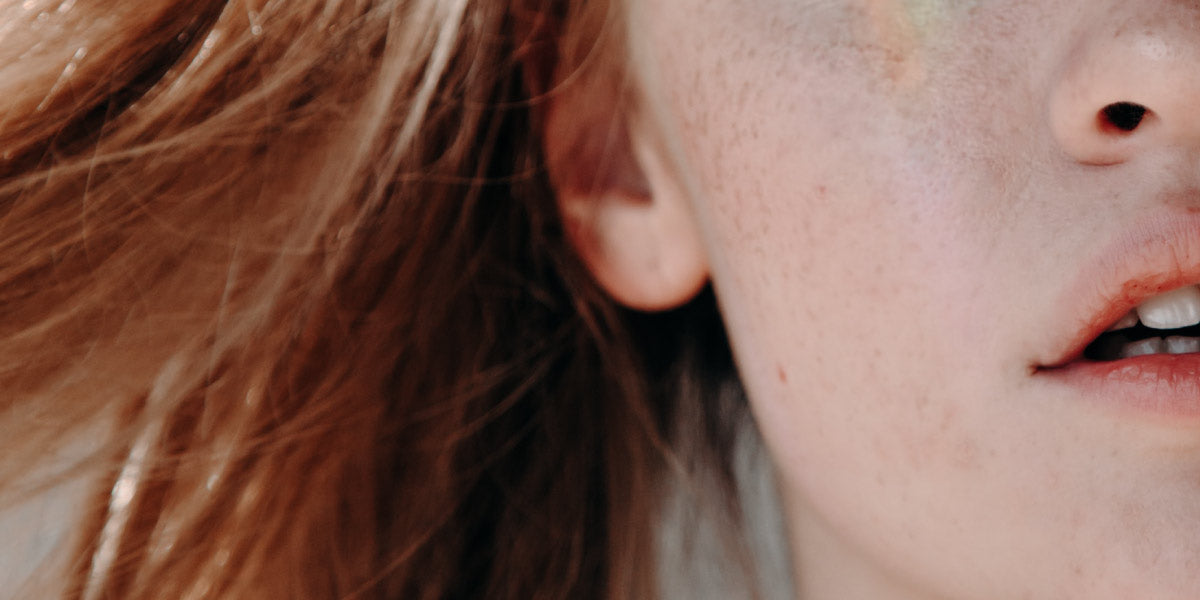We all know that sun exposure tans our skin, but we may not be aware of why this happens or how we sometimes even get dark spots or pigmentation.
It’s because some of our skin cells release a reddish-brown pigment called ‘melanin’, which protects our skin from the sun by absorbing its UV rays. These skin cells are very sensitive to light, which is why we tan when exposed to sunlight. Melanin is also what gives our skin and hair its colour [1].
Sometimes, in a condition known as ‘hyperpigmentation’ (or, simply, ‘pigmentation’), the production of melanin goes into overdrive, leaving spots of excess melanin in the skin. This makes certain patches of our skin turn to a darker shade (causing something we colloquially call ‘dark spots’) [2].
What causes this excess production of melanin?
For one, constant exposure to the sun’s UV rays. It creates free radical damage in the skin. Pigmentation can be one of the signs of damage, with the actual damage generally taking place far before any physical evidence of it becomes visible to the eye. Our genetic makeup and hormonal imbalances also affect the production of melanin in our skin [3, 4].

How to avoid and/or treat Pigmentation?
While there are several types of treatments currently being explored, not all of them are recommended as they may cause skin trauma and worsen the situation. Some of the safest and most common ways to protect our skin and treat pigmentation include:
-
Using sunscreen
First step – avoid anything that may exacerbate melanin deposition in the skin or keep hyperpigmentation from resolving on its own. Sunscreen, at least SPF 30, will help in this case by blocking UV radiation, which typically leads to excess production of pigment in skin [5].
-
Wound care
Areas of healing, such as a scratched bug bite or a picked pimple, are prone to infection and inflammation – this makes hyperpigmentation of the skin more likely. Wound care includes cleaning the skin with a gentle cleanser, not picking at the scabs or old pimple scars [6, 7].
-
Exfoliation
The uppermost layer of our skin renews itself every 30-45 days – and gentle chemical exfoliants can enhance and increase this rate of turnover, which helps hyperpigmented skin get replaced by new skin. Topical creams, mild face cleansers, and solutions that have ingredients like vitamin C or glycolic acid can also help with this [8, 9, 10].
-
Microdermabrasion
This is a gentle physical form of exfoliation that also helps our skin turnover at a faster rate. It’s best to consult your dermatologist for this treatment [11].
While you’re at it, you can also ask your dermatologist/skincare specialist about other options like prescription lightening creams (including those with kojic acid and hydroquinone), deeper chemical peels, and, under certain circumstances, laser treatments [3].
Preventing Pigmentation
One of the main reasons for pigmentation is skin damage. If we give our skin something that can protect it from damage before melanin comes into picture, that could help prevent the possible pigmentation. Well, our answer here is – antioxidants!

Antioxidants are molecules that stabilise free radicals, preventing them from causing damage to the skin that often lead to pigmentation. They even help reduce the existing damage caused by free radicals. While the body has its own natural antioxidants, a bad diet and environmental factors (like pollution) can create excess free radicals that they aren’t able to keep up with and neutralise [12].
Increasing our consumption of foods rich in antioxidants is always a great idea. Especially:
-
Colourful fruits and vegetables
These contain plant compounds such as carotenoids (found in yellow, red, and orange fruits/vegetables) that help protect our skin from sun damage. Red fruits/vegetables contain a potent antioxidant called lycopene, which is particularly good at neutralising the sun’s UV rays [13, 14].
-
Grapeseed oil
This contains a powerful antioxidant called proanthocyanidin, which can also lead to an even skin tone when it’s consistently applied on the skin. Consuming grapeseed oil extract orally has also been shown to improve the symptoms of melasma, a kind of hyperpigmentation of the skin caused by sun exposure and hormonal changes [15].
-
Foods rich in vitamin C & E
Vitamin C, apart from protecting our skin from free radical damage, promotes collagen (skin’s main protein) production, which in turn promotes even skin tone [16]. Vitamin E, on the other hand, is a potent antioxidant and its main function (under skincare) is to protect our skin from sun damage [17].
Interestingly, combining vitamin C and vitamin E makes them even more effective when it comes to protecting our skin from UV damage, leaving longer-lasting results. Foods rich in vitamin C include bell peppers, dark leafy vegetables, citrus fruits (like oranges), tomatoes, peas, and papayas. Foods rich in vitamin E include almonds, sunflower seeds, peanuts, pistachios, and wheat germ oil [18, 19]
Keeping a ‘reserve’ of these antioxidants in our body leaves our body’s natural antioxidants free to maintain the skin’s health in other ways.
For those of us who find it difficult to get enough of these nutrients in our everyday diet, it may be time to look at getting them through supplements. After all, their benefits don’t stop at addressing skin pigmentation but go on to play an extremely important role in maintaining (or improving, for that matter) our health in vast, profound ways.




1 comment
How can remove my pigmentation? Please give some idea
Leave a comment